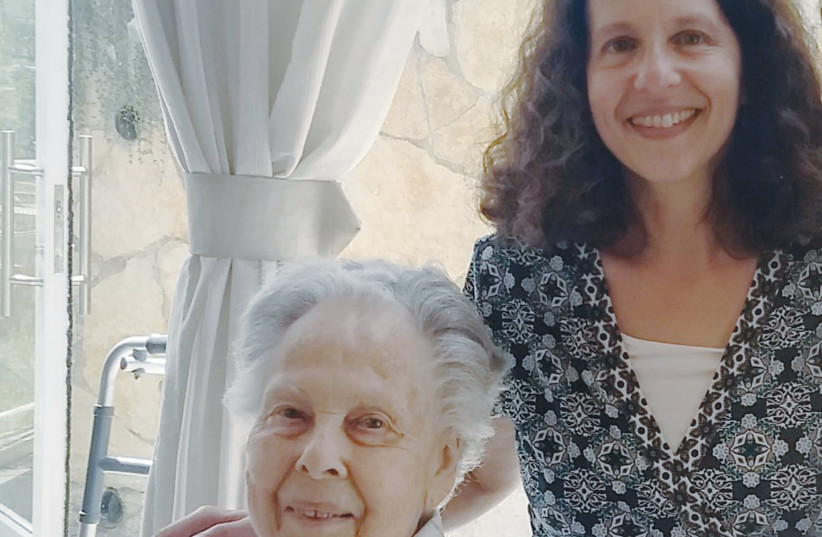In the spring of 2022, I threw my mother an 85th birthday party at a lovely café in Gan Sacher in Jerusalem. My kids were there, and my cousins, and my mother’s friends from Riverdale, New York, who had retired to Israel. There were songs and speeches and, of course, plenty of delicious food. My mother told me afterwards that it was one of the best birthdays she’d ever had.
Now, nearly two years later, everything is different. First, my beloved mother passed away several weeks ago. But even if she were still with us, I wouldn’t be able to host this kind of party. Israel has changed. The country is shrouded in sadness and fear, and birthdays are marked by muted celebrations rather than all-out bashes. Even in our most joyous moments, our hearts ache: for the victims of October 7, for the young men and women who have lost their lives on the battlefield, for the hostages and their families. For the sobering realization that even now, with a state and an army of our own, we are not as safe as we thought we were.
I know I am not the only person grappling with these two kinds of losses. I have no newfound wisdom to share, no answers – only questions. Some of the questions are for my mother. Those pink ballet slippers we found in a box on a closet shelf – were they yours? Who is that handsome man in the photograph, the one whose arm you’re clutching? What did your parents say when, at the age of 19, you joined the first-ever Bnei Akiva hachshara (Hebrew for preparatory training) program and boarded a ship to Israel?
Most of the questions are for myself: What does it mean, to lose a mother? When will I stop feeling like she’s only gone on an extended vacation? How is it possible that the person who brought me into this world, who raised me and protected me and loved me unconditionally, is gone? How do I adjust to this new and diminished reality?
And how do I hold these two very different kinds of grief at the same time? My mother’s death, while profound and heartbreaking, is not tragic. She lived a long and fulfilling life, and her death was painless and peaceful. People grow old and die; it is the way of the world.

But the death of the about 1,410 Israelis since October 7 defies all the laws of nature. People are not supposed to be brutally murdered or abducted. Parents are not supposed to bury children. “Orphan” is the word we use for children who have lost their parents; there is no equivalent for parents who have lost a child. That is not the way of the world.
A few nights ago, I went to shul to recite kaddish for my mother. After the Maariv/Arvit evening prayer, we moved to a larger room to listen to Einav Danino, the mother of one of the hostages, talk about her experience. It wasn’t easy for her to talk about her son, Ori, but she knew that sharing her story was vital. We cannot allow ourselves to forget Ori or any of the hostages. To let ourselves get so accustomed to this new reality that we start to think of it as the new normal. There is nothing normal about it.
How does life go on?
Sometimes my private mourning feels negligible: my mother has died. Most of my friends have lost at least one parent. Life goes on. Other times, it feels enormous. My mother has died! How do I make room for my personal loss in the face of Israel’s collective, catastrophic, losses?
When I find myself feeling that the sadness will never abate, I think back to September 3, exactly six months before my mother died. It was the day of my son’s wedding, and it was pure joy. The room was filled with love. The hazan sang about ascending to Jerusalem at the height of our gladness, and when my son smashed the glass, all the guests broke out in song. My mother was dancing. I believe there will be more days like that – for me and for all of us, regardless of the losses we grieve. We have learned that our hearts can contain a multitude of sadnesses.
Someday they will contain a multitude of joys as well. May that day come soon.
The writer is a poet and Hebrew-English literary translator. Her work has been published in The Ekphrastic Review, Midwest Quarterly, Passengers, Poetica Magazine, Zeek Magazine, and The Jewish Literary Journal.
